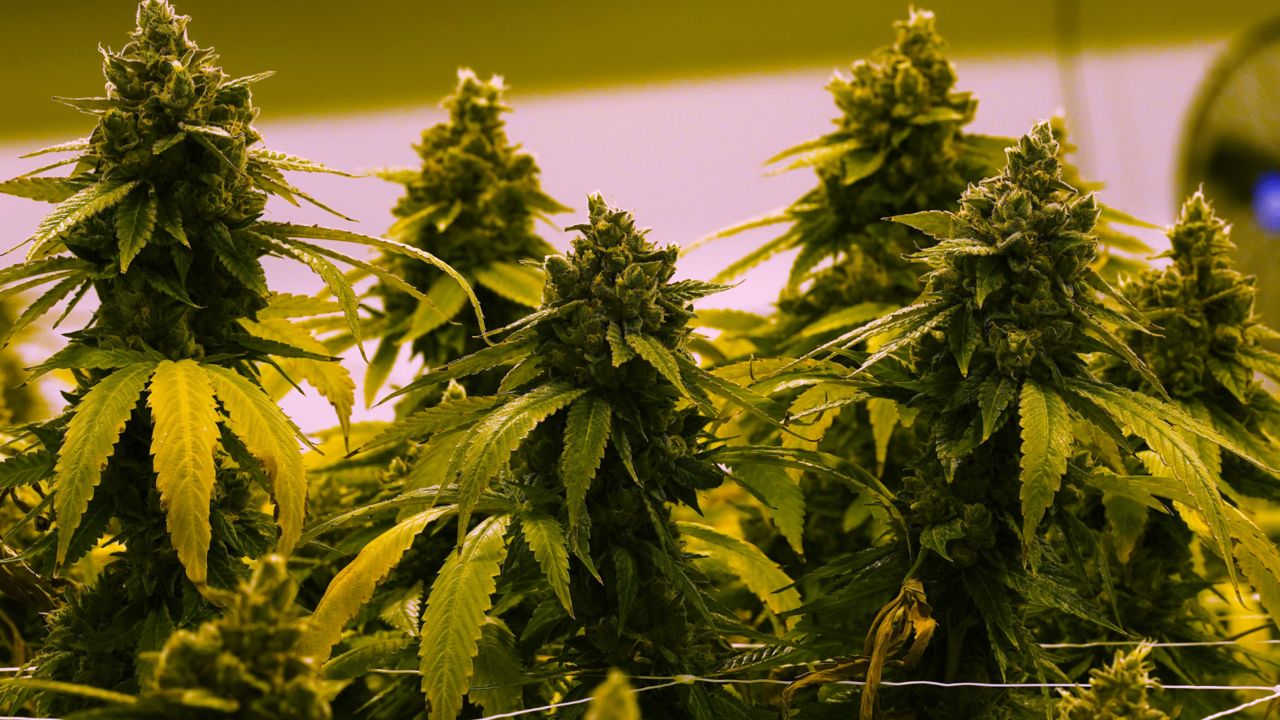The U.S. House of Representatives on Friday voted 220-204 in favor of H.R.3617, the Marijuana Opportunity Reinvestment and Expungement Act — or the MORE Act — which would decriminalize marijuana at the federal level.
Three Republicans joined nearly all Democrats in voting for the bill: Tom McClintock of California, Brian Mast of Florida and Matt Gaetz of Florida. Henry Cuellar of Texas and Chris Pappas of New Hampshire were the only Democrats to vote against it.
The bill, proposed by Rep. Jerry Nadler, D-N.Y., would remove marijuana -- which would also be renamed “cannabis” in all federal statutes -- from the list of scheduled substances under the Controlled Substances Act and eliminate "criminal penalties for an individual who manufactures, distributes, or possesses marijuana.”
There are also a number of other provisions included in the bill, such as a requirement for the Bureau of Labor Statistics to make public data on marijuana businesses and employees across the country, the creation of a trust fund to support programs in communities particularly impacted by the war on drugs, a tax on all cannabis products produced or imported into the United States and a prohibition to deny public health benefits to individuals with prior marijuana-related convictions.
The bill would also establish a process to expunge convictions of those sentenced to marijuana or cannabis-related offenses. According to the American Civil Liberties Union, over 8 million individuals were arrested for the possession or distribution of marijuana between 2001-2010.
“I am thrilled to announce that the House has passed my bill, the [MORE Act] on a bipartisan basis!” Rep. Nadler wrote in a tweet Friday. “This bill reverses decades of failed federal policies based on the criminalization of marijuana by legalizing marijuana, retroactively expunging previous convictions and more.”
The bill is unlikely to become law since it is expected to die in the Senate. That would mirror what happened when a similar House-passed measure removing marijuana from the list of federally controlled substances went nowhere in the Senate two years ago.
Still, Friday’s vote gave lawmakers the chance to state their views on a decriminalization push that appears to have broad support with voters across the country.
The 2020 election showed how broadly accepted marijuana has become, with measures to legalize recreational pot breezing to victory in progressive New Jersey, moderate Arizona and conservative Montana and South Dakota.
Democrats said the nation’s federal prohibition on marijuana has had particularly devastating consequences for minority communities. House Majority Leader Steny Hoyer, D-Md., cited statistics that showed Black Americans were four times more likely than white Americans to be arrested for marijuana possession, even though they use it at similar rates.
“Those criminal records can haunt people of color and impact the trajectory of their lives indefinitely,” Hoyer said. “I regret that there are some members of our Congress who apparently think that’s not worthy of attention.”
“Make no mistake, yes, it is a racial justice bill,” said Rep. Barbara Lee, D-Calif.
Republicans who opposed the measure said marijuana is a gateway drug and that legalizing it would lead to greater use of opioids and other dangerous substances. They also said the pot sold today is far more potent than what was sold decades ago, leading to greater impairment for those who use it. They said decriminalization is not the priority that lawmakers should be focused on now, with the war in Ukraine and inflation driving up the cost of gas, food and other essential items.
“Yet the priority of this Congress now turns to expanding access to addictive, behavior-altering recreational drugs at a time when our country is also experiencing increased addiction, depression and suicide,” said Rep. Bob Good, R-Va.
Thirty-seven states and the District of Columbia allow the medical use of cannabis products, while 18 states and the District of Columbia have legalized recreational marijuana, according to the National Conference of State Legislatures.
“If states are the laboratories of democracy, it is long past time for the federal government to recognize that legalization has been a resounding success and that the conflict with federal law has become untenable,” said Nadler, chairman of the House Judiciary Committee.
In the Senate, Democrats, including Majority Leader Chuck Schumer of New York, asked colleagues in early February for their input on a marijuana decriminalization bill that they would be introducing later this year.
“This is an issue of individual freedom and basic fairness that clearly transcends party lines,” the Democrats said in their letter to colleagues.



